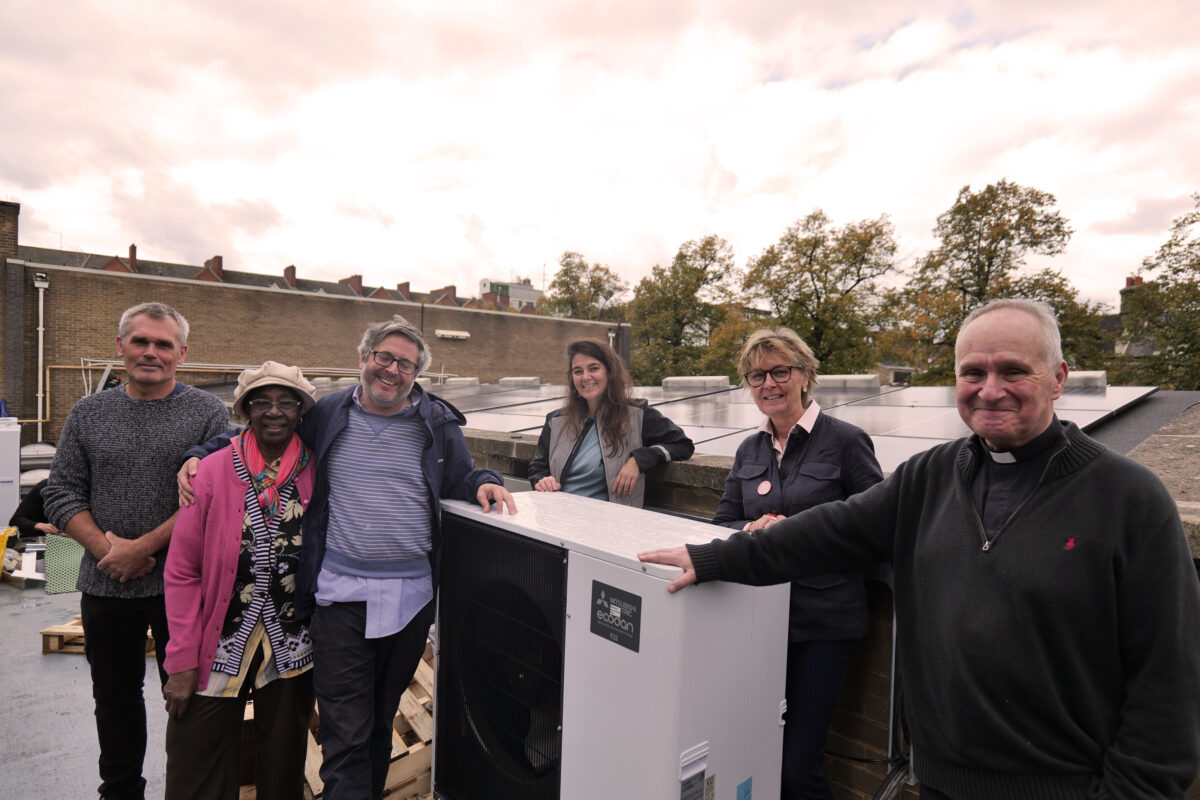Don’t know where to start your church’s net zero carbon journey?
Across the Diocese of London we’re encouraged to see the progress being made towards reducing our carbon footprint. However, we know it’s all too easy to be overwhelmed, baffled or even stuck as to where to start and how to keep going. So, we’ve put together this simple guide to help you on your journey.
Our brothers and sisters around the world are already facing the grim realities that our climate crisis is causing. In our Link Diocese of Mozambique, our siblings in Christ have faced severe flooding from tropical cyclones, a pattern that promises to only get worse.
One of the most practical responses we can do is to reduce the carbon emissions of our lifestyles and of the churches to which we belong. Switching our energy use to electricity is a key step as we see the encouraging progress that is being made to reduce the carbon emissions from grid electricity.
Thank you in partnering with us as we all take steps, however small they may feel, towards reducing the church’s carbon emissions. It is by small steps taken together that mountains are moved.
- Join Eco Church and progress towards an award. Eco Church provides a framework of advice and resources to help your church look at caring for creation. It covers worship, community engagement, lifestyle, land management and building management. Over 200 churches in the Diocese are registered. For more info visit the Eco Church website .
- Fill in your EFT return each year. Track your emissions and potentially gain access to national church funding by completing the Energy Footprint Tool. This simple form enables you to calculate how many tonnes of CO2 your church is using per year. It helps you, and the diocese, track the impact of building improvements and gives the national church essential information for assigning support and resources. Make your submission from January each year on the Parish Returns website.
- Use “A practical path to net zero carbon”. This self-guided checklist includes links to further guidance and case studies for churches who have progressed their Net Zero Carbon plans. Self Guided Checklist PDF (churchofengland.org)
- Get an Energy and Net Zero Carbon Audit – This will identify the range of actions you can take to reduce your energy use and carbon footprint, giving you heating options with outline running and installation costs. Get in touch with us for companies who can do this, and a scope.
- Make the “easy wins”. After your energy audit, work through the recommendations to implement some of the low-cost changes to reduce your bills and carbon.
- Consider a Heating Options Appraisal. This is recommended to explore preferred heating option(s) in more detail. Speak with your QI (quinquennial inspector) to approach consultants who they have worked with, to carry out this work: Heating options appraisal PDF
- Research possible funding sources. This national guidance is a good place to start, but please also get in touch for fundraising advice.
- Consult early with the Property Team. With your Archdeacon, we can help advise you on your path to Net Zero Carbon and give guidance on the Faculty process.
- Learn from another church. Speak to a church in your Deanery that has made further progress on NZC or ask us and we can put you in touch with another church. If you have already made good progress towards NZC – share your experiences, lessons learnt and even details of the contractors you used, with your local churches.
- Run your boiler at the end of summer! A practical point, to check your boiler is working properly and get it serviced if necessary. There will still be time for repairs before the heating season starts. At the same time get a report on the expected life of your current boiler.
Please remember, you’re not alone. Please contact the net zero carbon team with any questions or for advice: netzero@london.anglican.org
There is a wealth of information on the national Church of England website too.
